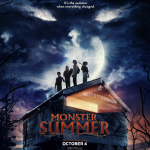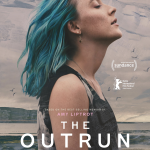Based on the book by the best-selling author of Wonder, this uplifting movie shows how one act of kindness can live on forever.
Chuck says:
I was lamenting to a colleague the other day about the need to continually make films espousing the virtues of kindness. No matter how many tragedies play out borne of hate, prejudice and fear, as a species our memories prove short, our baseless insecurities and assumptions prompting us to forget our better natures, our resulting actions cruel and shameful. With the current state of things, it’s obvious that we need to once more be reminded of the virtues of The Golden Rule.
Marc Forster’s “White Bird” proves to be better than most in delivering this message. An intimate story of a grandmother’s efforts to steer her grandson down the right path, she recounts her own experiences to him as an example of the power of kindness. Based on the novel by R.J. Palacio, a pseudo-sequel to his best-selling “Wonder,” the film’s depiction of holocaust is narrow in focus, appropriate for the teen audience it’s aimed at. Its intent is to establish a vicarious connection between the younger viewer and one of its characters, which Forster and his cast do with little overt manipulation.
Julian (Bryce Gheisar), the young man expelled from Yates Academy in “Wonder” for bullying Auggie is the initial focus. Having trouble fitting in at his new school and often left to fend himself because of his far-too social parents, his grandmother (Helen Mirren) senses he’s a bit lost and doesn’t understand the impact of his past actions. When he tells her all he wants to do is “be normal, be quiet and fit in,” the implicit complacency of the statement doesn’t sit well. As such, she tells him her story, one that explains where the young man’s name came from as well as her zest for life.
A flashback ensues and we see the grandmother, Sara (Ariella Glaser) as a preteen, privileged, insular and oblivious to the changes going on around her. The influence of the Nazis is slowly creeping into her life, something she pays no mind to until it directly impacts her. While at school one day, she’s informed her parents have been taken away and that soldiers are coming to do the same with her and other Jewish students. In the confusion, she manages to slip away and by chance is found by Julian (Orlando Schwerdt), a classmate afflicted with polio, the target of constant bullying. He takes her to his home where his parents (Gillian Anderson and Jo-Stone Fewings) welcome and shelter her, hiding her in their barn.
What plays out is all-too familiar yet still manages to prove impactful. Sara and Julian manage to see one another through eyes of newfound understanding. The film is not so foolish as to pretend this would happen overnight, the young woman’s perception changing slowly and more genuine in the process. If anything, Forster errs in spending far too much time establishing this, the film sagging during its second act, Schwerdt and Glaser struggling at times to keep us engaged.
Shooting on location in the Czech Republic and with an era-accurate production design from Jennifer Williams, the sense of place is authentic. This, coupled with the slow sense of dread that envelopes the story, the viewer is primed for the tragedy that ensues. Again, geared towards a younger audience, Forster walks a fine line between being overly graphic in his depiction of the story’s violence and dulling its impact. He succeeds handsomely in this regard, pulling no punches in focusing on the emotional tragedy of the events. He’s bolstered by his sincere cast, particularly Glaser and Anderson, who provide the sort of vicarious pain vital for the movie to succeed.
To live in a world in which a simple act of kindness is seen as heroic is a tragedy that’s long been repeated in our history. To pretend that the behavior that precipitates this could be irradicated and never repeated is foolish and naïve. As such, films and stories like “White Bird” are modest in their intent, attempting to reach young viewers susceptible to change, in the hope their behavior will serve as an example for others. In accepting this challenge, Forster, his cast and crew do justice to those for whom they speak.
3 Stars




